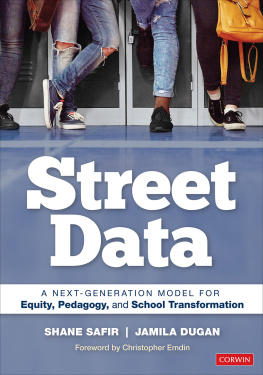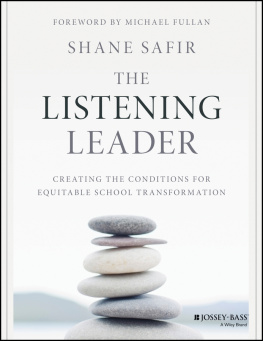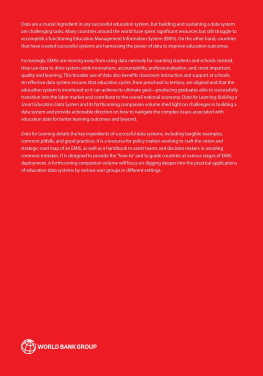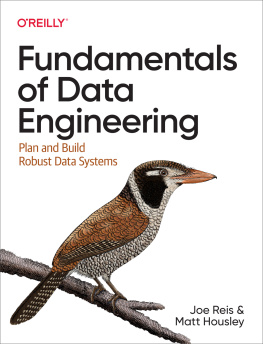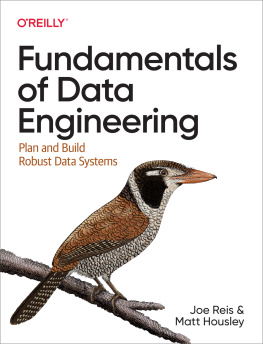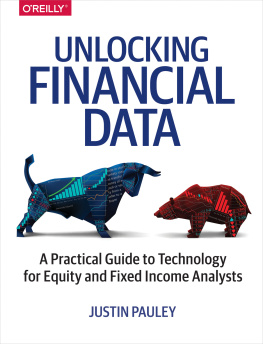Shane Safir - Street Data: A Next-Generation Model for Equity, Pedagogy, and School Transformation
Here you can read online Shane Safir - Street Data: A Next-Generation Model for Equity, Pedagogy, and School Transformation full text of the book (entire story) in english for free. Download pdf and epub, get meaning, cover and reviews about this ebook. year: 2021, publisher: SAGE Publications, genre: Home and family. Description of the work, (preface) as well as reviews are available. Best literature library LitArk.com created for fans of good reading and offers a wide selection of genres:
Romance novel
Science fiction
Adventure
Detective
Science
History
Home and family
Prose
Art
Politics
Computer
Non-fiction
Religion
Business
Children
Humor
Choose a favorite category and find really read worthwhile books. Enjoy immersion in the world of imagination, feel the emotions of the characters or learn something new for yourself, make an fascinating discovery.
- Book:Street Data: A Next-Generation Model for Equity, Pedagogy, and School Transformation
- Author:
- Publisher:SAGE Publications
- Genre:
- Year:2021
- Rating:3 / 5
- Favourites:Add to favourites
- Your mark:
Street Data: A Next-Generation Model for Equity, Pedagogy, and School Transformation: summary, description and annotation
We offer to read an annotation, description, summary or preface (depends on what the author of the book "Street Data: A Next-Generation Model for Equity, Pedagogy, and School Transformation" wrote himself). If you haven't found the necessary information about the book — write in the comments, we will try to find it.
Radically reimagine our ways of being, learning, and doing
Education can be transformed if we eradicate our fixation on big data like standardized test scores as the supreme measure of equity and learning. Instead of the focus being on fixing and filling academic gaps, we must envision and rebuild the system from the student upwith classrooms, schools and systems built around students brilliance, cultural wealth, and intellectual potential. Street data reminds us that what is measurable is not the same as what is valuable and that data can be humanizing, liberatory and healing.
By breaking down street data fundamentals: what it is, how to gather it, and how it can complement other forms of data to guide a school or districts equity journey, Safir and Dugan offer an actionable framework for school transformation. Written for educators and policymakers, this book
Offers fresh ideas and innovative tools to apply immediately
Provides an asset-based model to help educators look for whats right in our students and communities instead of seeking whats wrong
Explores a different application of data, from its capacity to help us diagnose root causes of inequity, to its potential to transform learning, and its power to reshape adult culture
Now is the time to take an antiracist stance, interrogate our assumptions about knowledge, measurement, and what really matters when it comes to educating young people.
Shane Safir: author's other books
Who wrote Street Data: A Next-Generation Model for Equity, Pedagogy, and School Transformation? Find out the surname, the name of the author of the book and a list of all author's works by series.

